- May 4, 2025
-
-
Loading

Loading
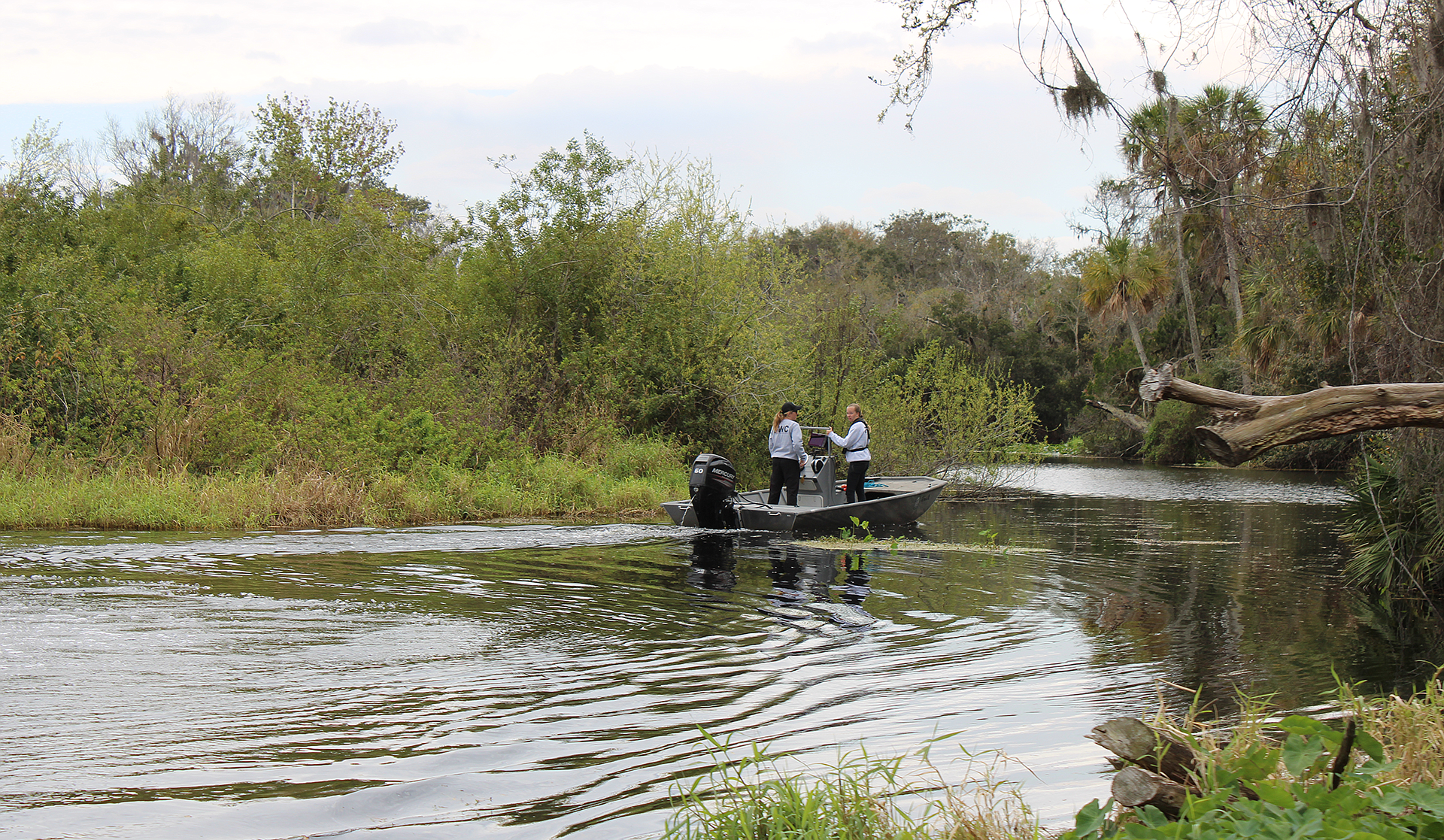
Standing at a dock at Jiggs Landing last week, Denise Kleiner grabbed a fishing net, and poked its handle into the water of the Bill Evers Reservoir.
She pulled the handle out of the water, and it was covered by a large clump of what many of us would call seaweed. It was a big ball of dripping, grass-like goo.
"There is some of it there," Kleiner said, pointing at a few different spots on the gooey ball.
Kleiner, the general manager of the Jiggs Landing Preserve and president of Florida Boat Tours, was pointing out what she called eelgrass, or the Old World Tape Grass that currently is plaguing the Braden River. They are very similar and yet dangerously different.
While eelgrass is generally considered an aquatic plant that is native to the state, the Florida Fish and Wildlife Conservation Commission is on the lookout for Old World Tape Grass.
Florida Fish and Game has sent biologists and other employees on a regular basis to launch boats at Jiggs Landing to travel up and down the Braden River looking for the invasive plant. On a wall next to the rest rooms as you enter Jiggs Landing is somewhat of a wanted poster with the headline "Invasive Plant Advisory."
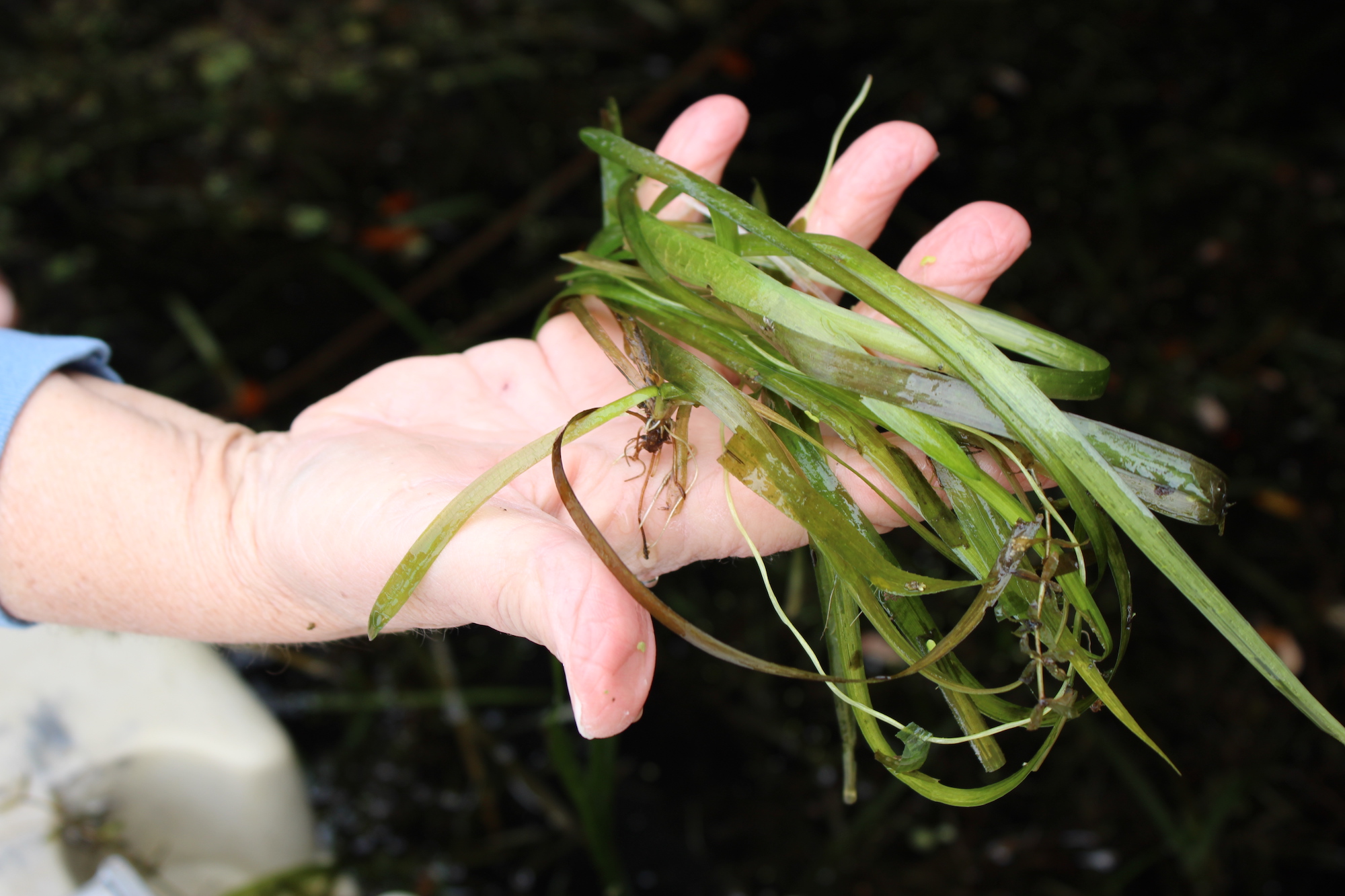
Issued by Florida Fish and Wildlife, information on the advisory says, "Old World Tape Grass is an effective invader that has the potential to cause damage to our native fish and wildlife by outcompeting our native submersed vegetation. This plant also can disrupt recreational opportunities by clogging boat motors and physically reducing access to waterbodies."
The fact is, though, that unless you are a Fish and Game biologist, or botanist, or an avid boater or fisherman, it is unlikely you could tell he difference between the Old World Tape Grass and all the other plants growing under the surface of the water.
That's important because those taking their boats, or canoes or kayaks out of the Braden River need to make sure the surfaces, props and motors are clear of any vegetation. The fear is that what is now a problem on the Braden River for the first time could become a problem in other waterways around the state. Fish and Wildlife also wants people to call if they see it, but do they know what they are looking for?
Old World Tape Grass is native to Europe but biologists suspect it has taken root in the U.S. through the aquarium trade. People dump their aquariums, which are often decorated with the fast-growing plant, into ponds or stormwater drains, and it spreads.
Kleiner began to see clumps of the plant in March 2023 near the docks of her concession at Jiggs Landing. She said it took several reports to Florida Fish and Wildlife before she was taken seriously.
"My biggest worry was that we were going to get lost in the shuffle," Kleiner said. "I have been here a long time, I have lived on this river, and I know this river," Kleiner said. "I was worried it was going to get to the point where we couldn't get out from under this problem.
"I was afraid the fish and the river would die. This whole area lives on sustainable tourism. People want to see a clean river, and they want to catch fish."
Kristen Peterson, a biologist with Florida Fish and Wildlife said she is pleased with the progress that has made since FFWCC began its quest to eradicate the wire grass.
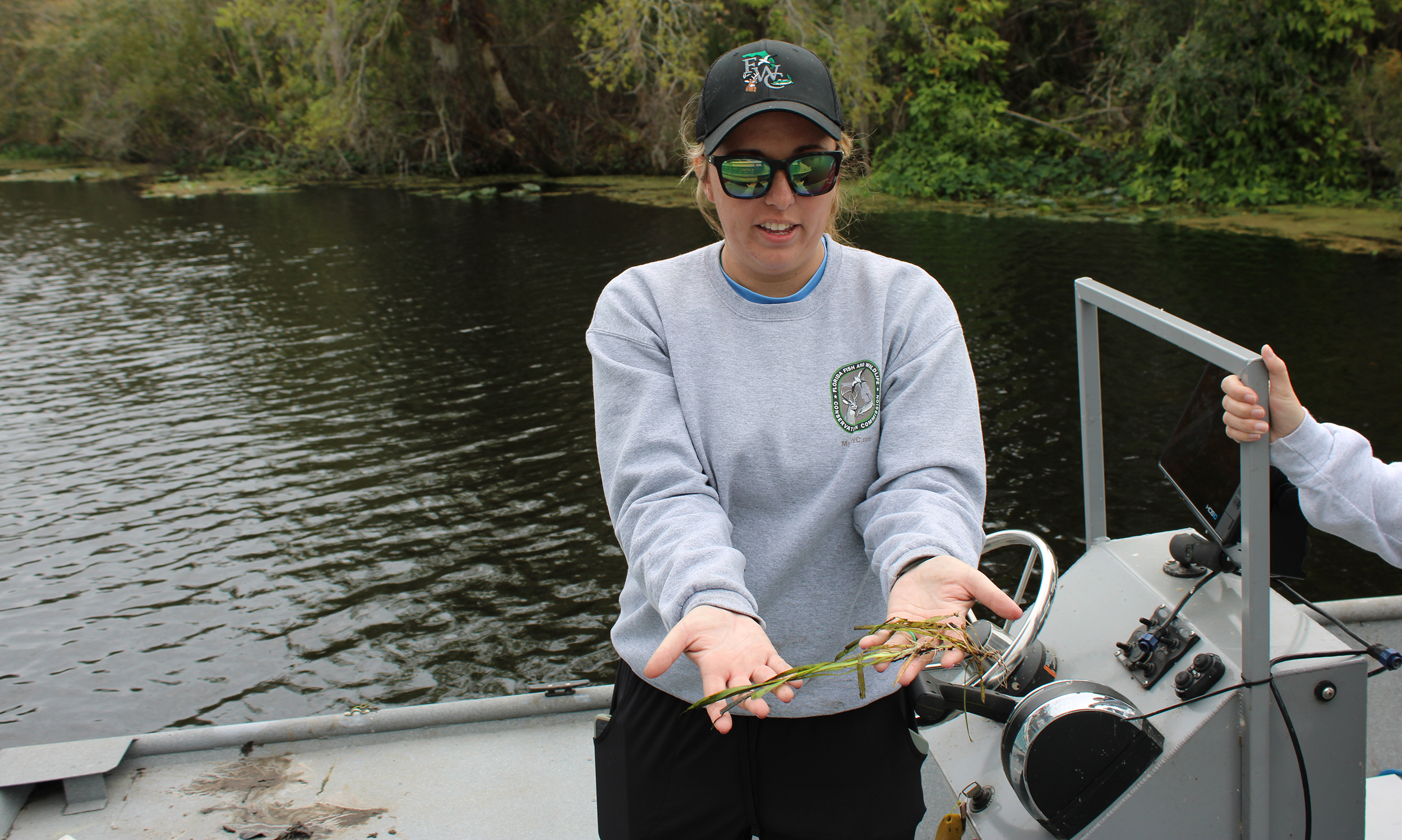
"It is looking much better than it did in the summer," Peterson said.
Peterson, who works in evasive plant management, said "People in Tallahassee" are serious about ridding the Braden River of the tape grass.
"I am basically living here," she said of being on the Braden River.
While she said it is a serious matter, she said she didn't consider it an ecological disaster. She said FFWCC is treating the tape grass with a "copper liquid" that is the same chemical used to eradicate algae blooms in reservoirs.
"It is completely safe," she said.
She was checking on different spots where the tape grass has been treated with fellow biologist Jamie Wolanin, who specializes in habitat restoration.
They both said it is too early to even understand what the repercussions are from having the plant in the Braden River.
Last summer, the biggest problem was that fishermen were having trouble navigating the river.
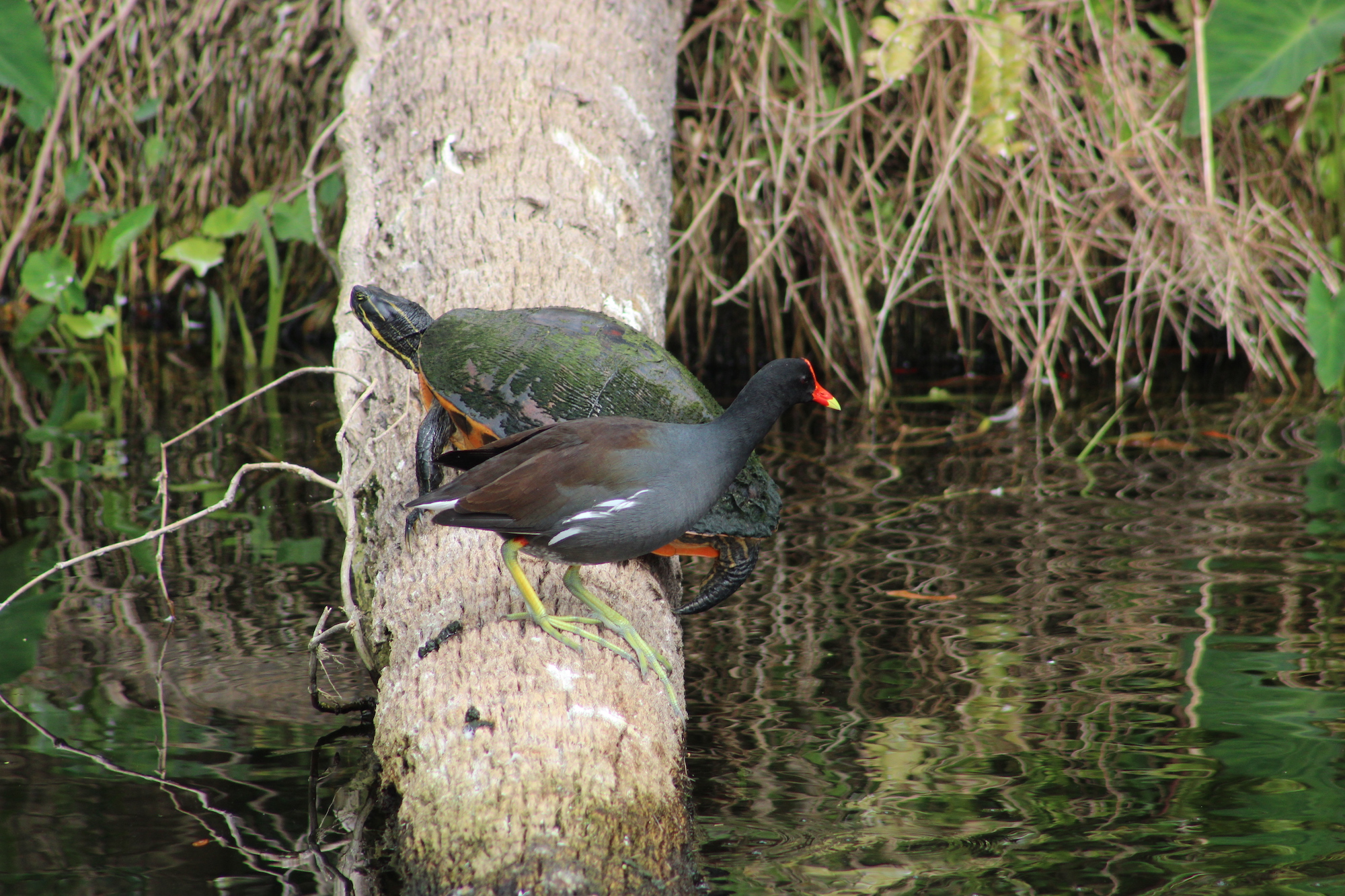
Avid fisherman Andy "Doc" Lee, a Florida Forest Service ranger who has fished the Braden River since 1977, said noticed the tape grass "was all over the place" last summer, but he didn't know, navigation aside, whether that was a good or bad thing. He said sometimes having that additional plant growth in the river provides a spawning ground for fish.
He noted that water hyacinth tends to attract grass shrimp and snails, but he said he finds neither attached to the tape grass, which he said started showing up about 18 months ago. Then it began to get thick.
"Unless you were canoeing or kayaking, you couldn't get through it," he said.
He said it was obvious the tape grass was aggressive because "the hyacinth can grow an inch a day and it was overtaking that."
He said an area near the Jiggs Landing boat launch was full of tape grass.
"It was everywhere," he said.
He reserves judgement, though, until he sees the effects of the treatments. He remembered that Evers Reservoir used to have a small island of lily pads, which were considered invasive, and they were treated and totally wiped out. He said it ruined a prime fishing area.
He said, so far, he isn't worried about he tape grass.
"It hasn't affected me," he said.
But others are worried navigation of the river will be majorly affected if tape grass is allowed to flourish.
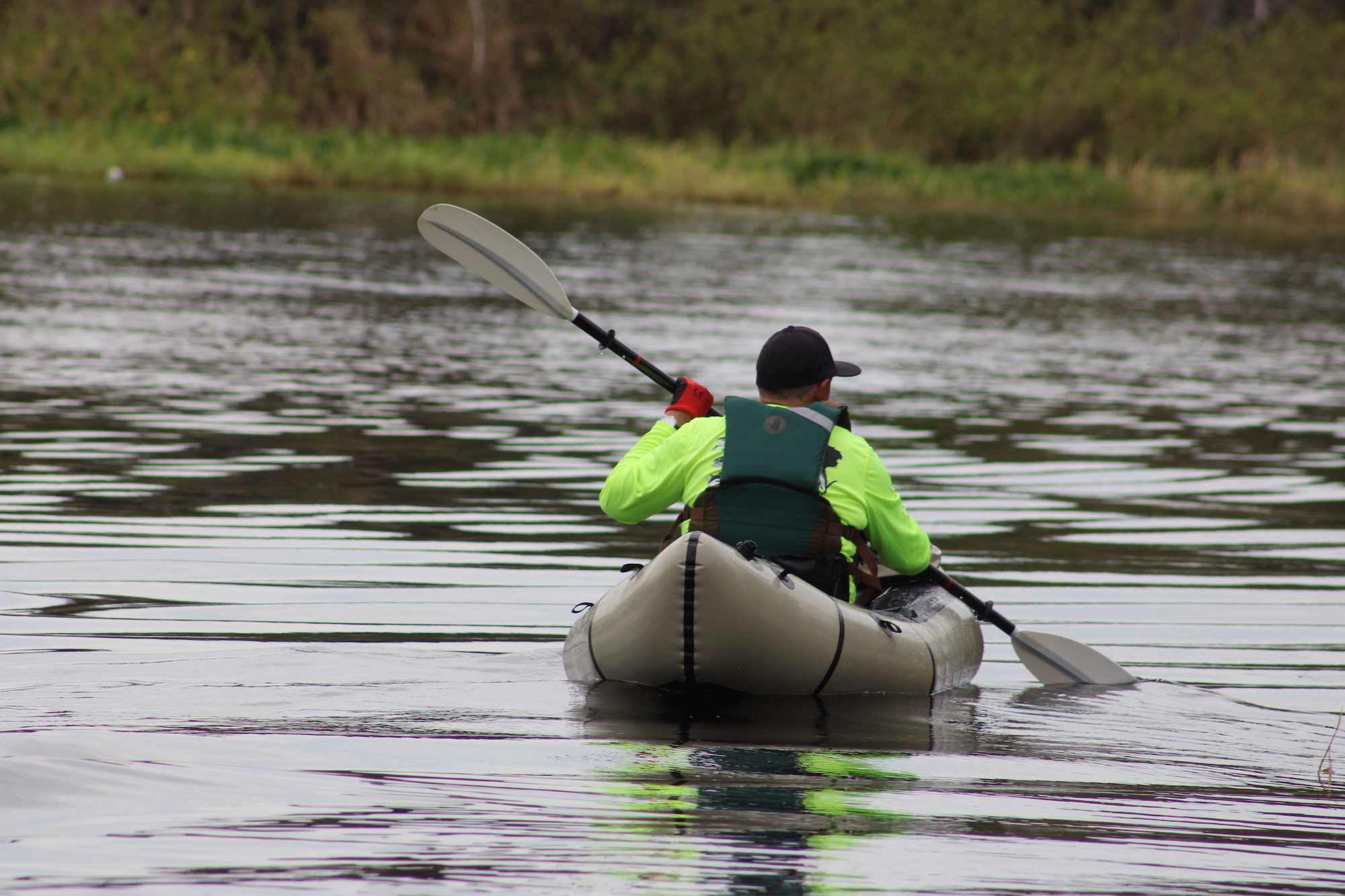
"We were worried we weren't going to be able to get our boats up to Linger Lodge," Kleiner said. "We were pulling it out by hand."
At one point last fall, Kleiner posted a photo of Fish and Game spraying the river to control the tape grass. She ignited a firestorm as people began to worry what the chemical might do to the fish, and the water in the reservoir. "I kept reading posts, 'Look at all those chemicals Denise is putting into the water," she said. "I wasn't doing anything. I had to take the photo down."
She said she is grateful that Fish and Game is working so hard to eradicate the problem.
"I know it's hard to balance the environment between people and nature," she said.